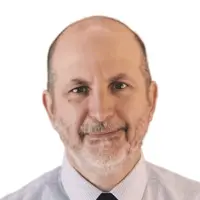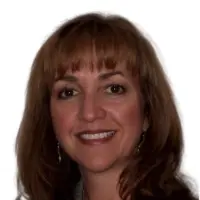About Wellmore | Child & Adolescent Behavioral Health Services
Wellmore Behavioral Health is located in Danbury, Connecticut. This is an outpatient treatment facility that helps adults and adolescents work through a variety of substance abuse and co-occurring mental health struggles.
Along with general outpatient care, they have a targeted intensive outpatient program for both adults and adolescents. Their intensive treatment track can help recovering individuals make meaningful changes that will positively impact the trajectory of their lives after substance abuse treatment.
Policies for most major insurance providers are accepted here, and services are covered through Medicaid and other state funded health plans. They also offer sliding scale discounts as well.
Home Based Services
While their outpatient programming is really robust, there are specific cases where in home care might be a more appropriate recovery approach. Wellmore Behavioral Health has a really well developed home based program designed for children and adolescents who are in need of crisis response support or have chronic or severe mental health or emotional disturbances that might lead to at risk behaviors like drug use.
Their home based services are very welcoming and are available in both Spanish and other language supports if needed. As with all their programming, their home based services extend to family members as well, helping individuals build a network of support they can lean on when they need it most.
Evidence Based and Trauma-Informed Care
The services here are specialized toward children and adults who have endured trauma and have suffered a mental health or substance abuse disorder as a result. Trauma informed care is used alongside cognitive behavioral therapy, individual and group counseling, and other evidence-based and holistic supports to meet you where you’re at in the struggles you’re facing.
Latest Reviews
Rehab Score
Accepted Insurance
Other Forms of Payment
Medicaid is a state based program that helps lower-income individuals and families pay for healthcare. Medicaid covers addiction treatment so those enrolled can use their coverage to pay for rehab. When a program accepts Medicaid the client often pays very little or nothing out of their own pocket.
Private insurance refers to any kind of healthcare coverage that isn't from the state or federal government. This includes individual and family plans offered by an employer or purchased from the Insurance Marketplace. Every plan will have different requirements and out of pocket costs so be sure to get the full details before you start treatment.
Self-pay involves paying for treatment out of your own pocket. You can use savings or credit, get a personal loan, or receive help from family and friends to fund your treatment. If you don't have insurance or your insurance plan doesn't cover a specific program, self-pay can help ensure you still get the care you need.
Financial aid can take many forms. Centers may have grants or scholarships available to clients who meet eligibility requirements. Programs that receive SAMHSA grants may have financial aid available for those who need treatment as well. Grants and scholarships can help you pai for treatment without having to repay.
Addiction Treatments
Levels of Care
Outpatient Programs (OP) are for those seeking mental rehab or drug rehab, but who also stay at home every night. The main difference between outpatient treatment (OP) and intensive outpatient treatment (IOP) lies in the amount of hours the patient spends at the facility. Most of the time an outpatient program is designed for someone who has completed an inpatient stay and is looking to continue their growth in recovery. Outpatient is not meant to be the starting point, it is commonly referred to as aftercare.
Inpatient rehab offers intensive treatment for clients who are transitioning out of detox, in early recovery, and at risk of relapse. Housing and meals are provided, and most facilities offer round-the-clock clinical care. Clients engage in multiple counseling and therapy sessions each week, along with extensive recovery-focused life skills training. Many inpatient drug rehab programs include evidence-based complementary therapies, such as meditation, massage, creative arts therapy, nutrition therapy, and experiential therapy.
Intervention services can be crucial to successfully plan and complete a drug intervention in Connecticut. A professional interventionist can walk loved ones through the careful step-by-step process of carrying out an intervention. This process may be necessary if an individual is causing physical harm to themselves or others, when it is apparent that they aren't going to get help, or when they deny they have a problem at all.
Treatments
Mental health rehabs focus on helping individuals recover from mental illnesses like bipolar disorder, clinical depression, anxiety disorders, schizophrenia, and more. Mental health professionals at these facilities are trained to understand and treat mental health issues, both in individual and group settings.
Programs
Adult rehab programs include therapies tailored to each client's specific needs, goals, and recovery progress. They are tailored to the specific challenges adult clients may face, including family and work pressures and commitments. From inpatient and residential treatment to various levels of outpatient services, there are many options available. Some facilities also help adults work through co-occurring conditions, like anxiety, that can accompany addiction.
Clinical Services
Cognitive Behavioral Therapy (CBT) is a therapy modality that focuses on the relationship between one's thoughts, feelings, and behaviors. It is used to establish and allow for healthy responses to thoughts and feelings (instead of unhealthy responses, like using drugs or alcohol). CBT has been proven effective for recovering addicts of all kinds, and is used to strengthen a patient's own self-awareness and ability to self-regulate. CBT allows individuals to monitor their own emotional state, become more adept at communicating with others, and manage stress without needing to engage in substance abuse.
Staff

Gary M. Steck, LMFT
Chief Executive Officer

Christopher M. Young
Medical Director

Jacqueline M. Post
VP of Development & Community Relation

Kristin Pracitto, LCSW
VP of Child Services

Regan Moriarty, LCSW, LADC
VP of Adult Services
Contact Information
41 Kenosia Ave
STE 301
Danbury, CT 06810




